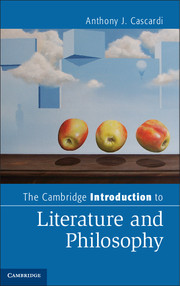Book contents
- Frontmatter
- Contents
- Acknowledgments
- Introduction
- Part I Questions of Truth and Knowledge
- Chapter 1 The “Ancient Quarrel”
- Chapter 2 Action, Imitations, Conventions of Make-Believe
- Chapter 3 The Single Observer Standpoint and Its Limits
- Chapter 4 Contingency, Irony, Edification: Changing the Conversation about Truth
- Part II Questions of Value
- Part III Questions of Form
- Afterword Limits
- Glossary of Keywords
- Notes
- Index
- References
Chapter 4 - Contingency, Irony, Edification: Changing the Conversation about Truth
Published online by Cambridge University Press: 05 June 2014
- Frontmatter
- Contents
- Acknowledgments
- Introduction
- Part I Questions of Truth and Knowledge
- Chapter 1 The “Ancient Quarrel”
- Chapter 2 Action, Imitations, Conventions of Make-Believe
- Chapter 3 The Single Observer Standpoint and Its Limits
- Chapter 4 Contingency, Irony, Edification: Changing the Conversation about Truth
- Part II Questions of Value
- Part III Questions of Form
- Afterword Limits
- Glossary of Keywords
- Notes
- Index
- References
Summary
Pragmatism
From a pragmatist standpoint, questions like “What is truth?” “What is consciousness?” and “What is reality?” that the Cartesian model was designed to answer could better be understood by watching how we actually use words like “truth” and “consciousness.” This was the spirit in which Wittgenstein attempted to shift emphasis away from questions about essences and toward linguistic usage. His “therapeutic” approach to philosophy’s fundamental problems was to ask questions about the place of an utterance within the give-and-take of “language games.” This was the term that Wittgenstein adopted from Fritz Mauthner to describe the nature of language as a set of shared, rule-based practices. In his later work, Wittgenstein saw an utterance as more like a move in a game than an independently structured proposition. Whatever one says makes sense, if at all, in relation to other utterances, or as part of a web of contextual relations – but not as the manifestation of some deep-structure content. Similarly, Wittgenstein proposed that it was more fruitful to reframe questions about identity and essence in terms of “family resemblance.” (Wittgenstein may have derived that notion from Nietzsche, who used it when talking about language families.) Wittgenstein’s point was that things may be connected by overlapping similarities rather than by a single underlying feature.
Richard Rorty’s work carried these ideas forward, specifically by insisting that “truth” and “value” do not have any particular form or underlying essence aside from the ways in which such terms are used. Rorty, like Wittgenstein, wanted to return them from philosophy to the forms of our everyday practices. “Truth,” he said “is not the sort of thing one should expect to have a philosophically interesting theory about.” So too with value: “[Pragmatists] see certain acts as good to perform, under the circumstances, but doubt that there is anything general and useful to say about what makes them all good” (xiii). It is worth noting that Voltaire’s Philosophical Dictionary has no entry for “truth,” although it does have one for “tolerance.” “We are all steeped in weakness and error,” writes Voltaire; “let us forgive one another’s follies, it is the first law of nature.”
- Type
- Chapter
- Information
- The Cambridge Introduction to Literature and Philosophy , pp. 49 - 58Publisher: Cambridge University PressPrint publication year: 2014

